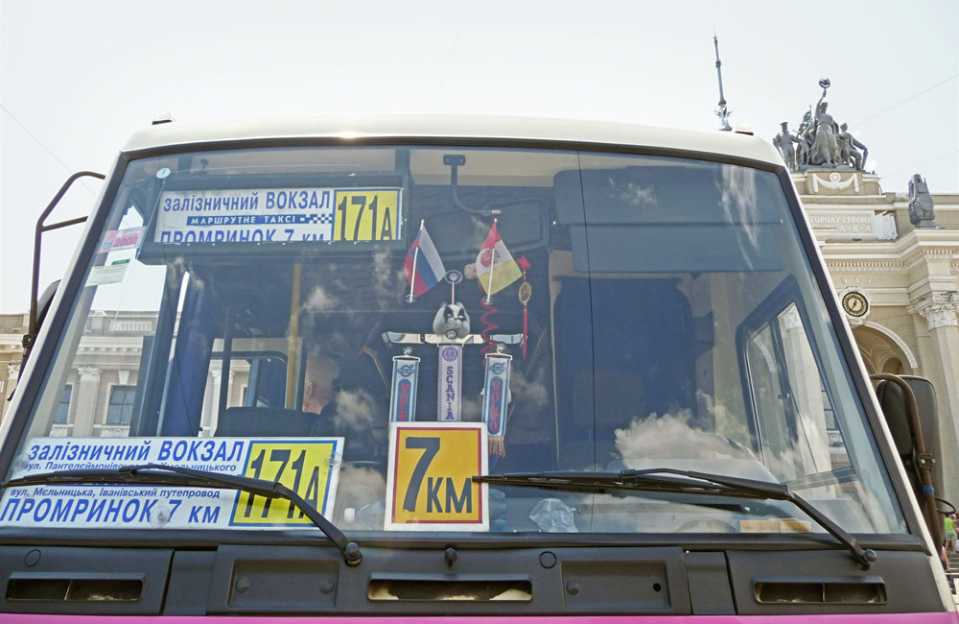
Former African students work as traders on the 7th Km Market.
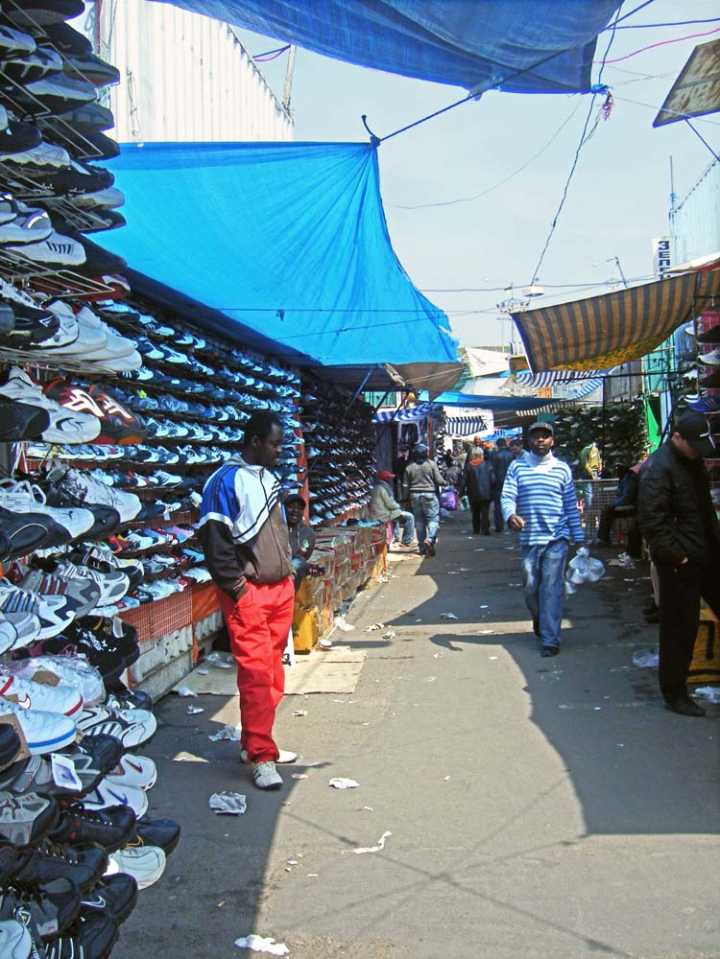
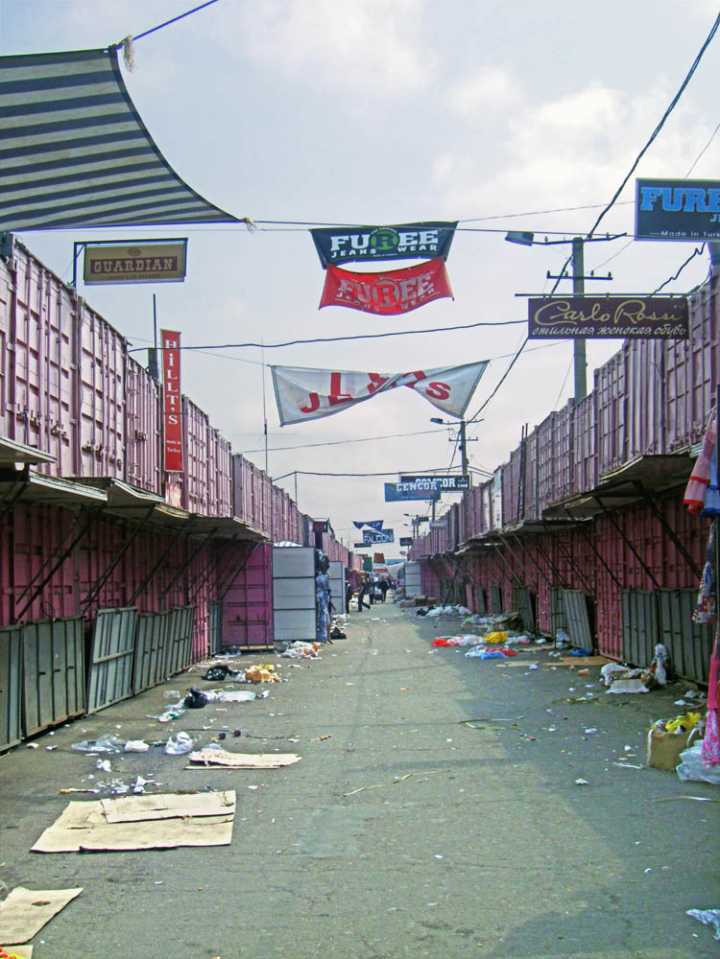
Right: The 7th km: Pink street after closing time.
The 7th km: night-time wholesale trade.
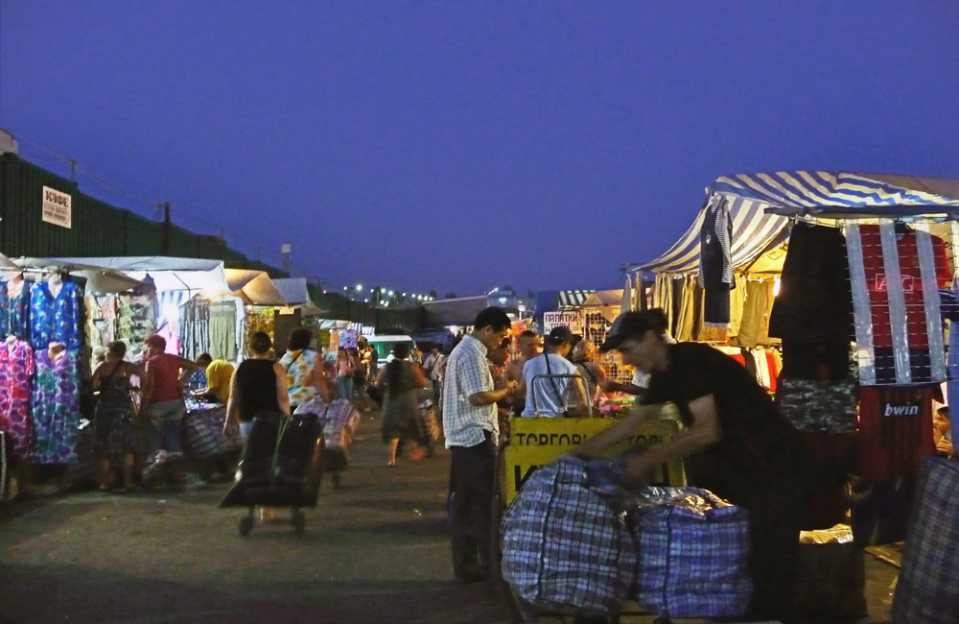
A Turkish trader selling Turkish leather goods.
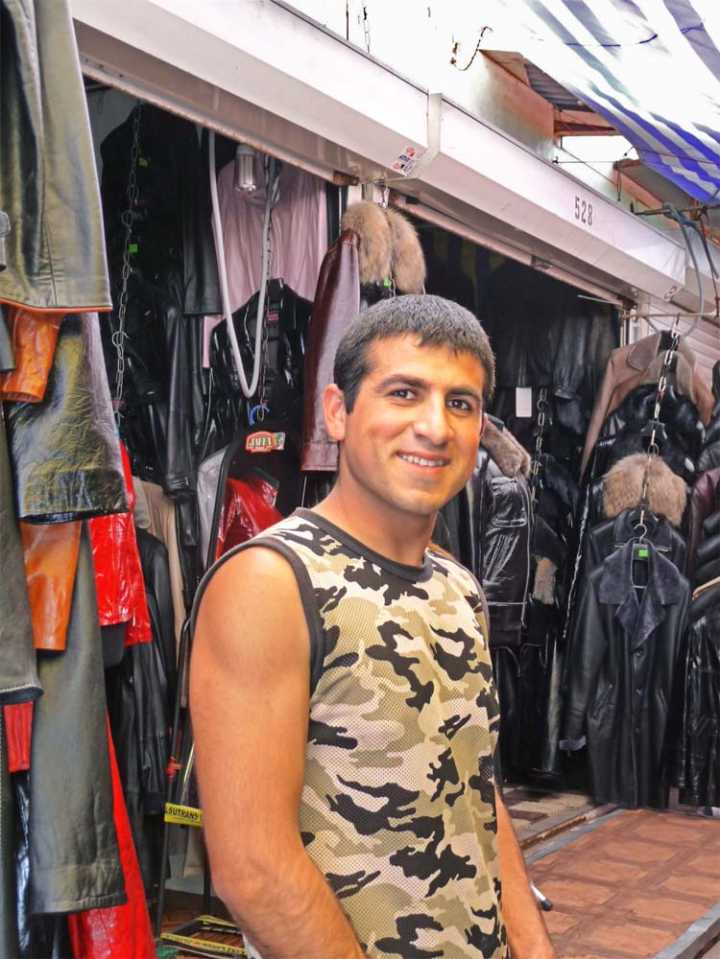
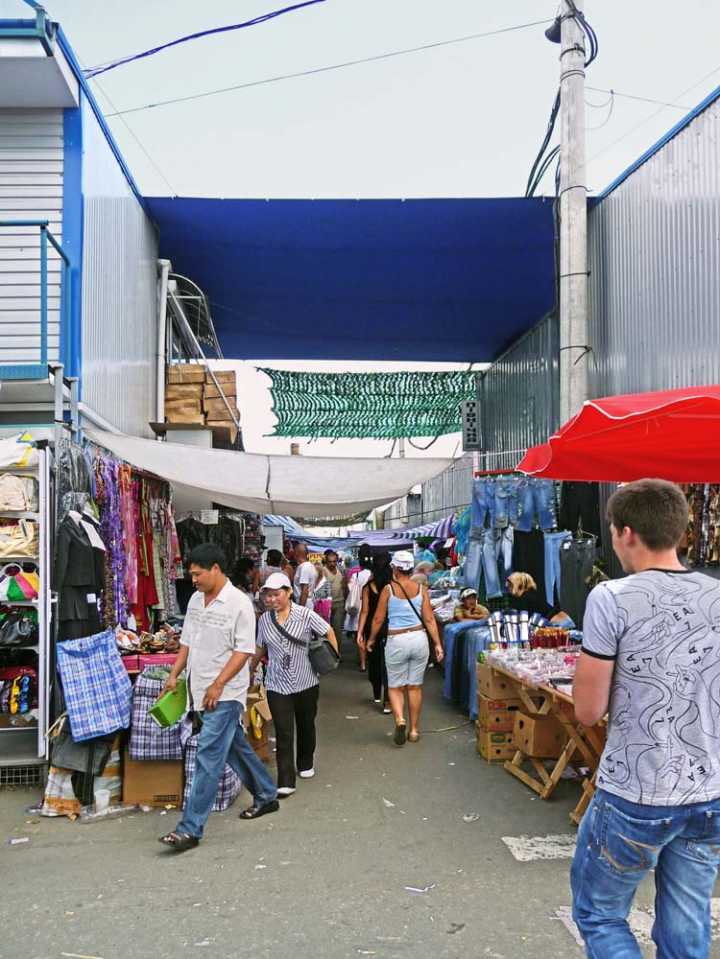
Right: A Vietnamese money changers' corner.
Sociality on the market: a shared meal after work.
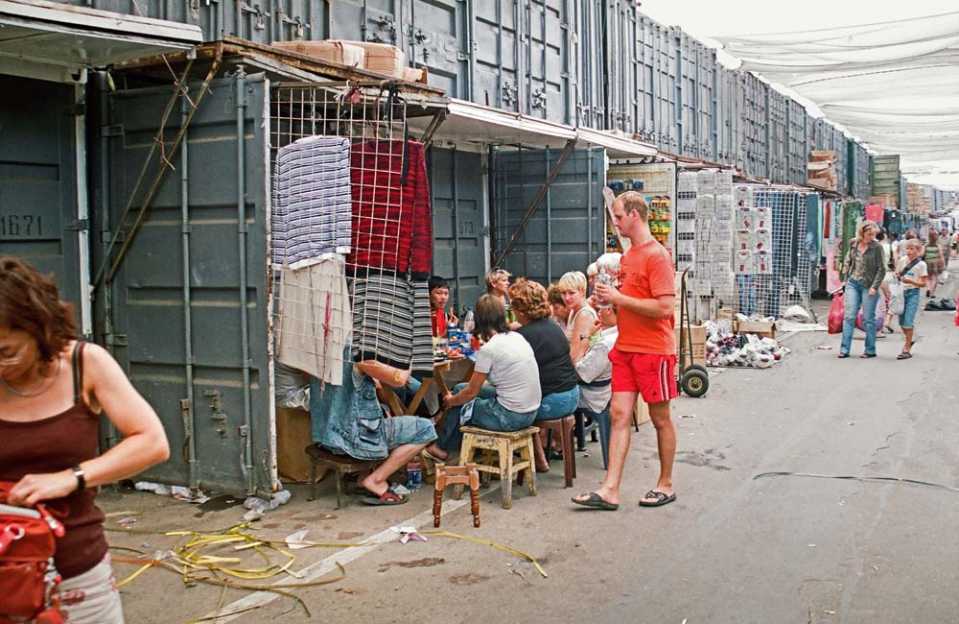
THE MARKET AS A HETEROTOPIA
In relation to the city, which is also commercialised, such a market is like its bad boy alter-ego. It can be seen as a heterotopia, to use Foucault’s expression. Such places, he suggests, have a mirror-like relation to us. They are ‘real places… that are something like counter-sites, a kind of effectively enacted utopia in which … all the other real sites that can be found within the culture are simultaneously represented, contested and inverted’ (Foucault 1986: 24). We shall take a hint from Foucault’s description of one kind of heterotopia to argue that these new commercial structures are the brute reality of socio-economic life. Foucault writes that heterotopias ‘have a function in relation to all the space that remains’, and the role of certain of them ‘is to create a space of illusion that exposes every real space, all the sites inside of which human life is partitioned, as still more illusory (perhaps that is the role that was played by those famous brothels of which we are now deprived)’ (1986: 27). It can be argued along these lines, that since the rock-bottom, indecent intensity of money-making in the 7th Kilometre underpins the economy of the whole of southern Ukraine, perhaps even that of the state itself, it is the polite boutiques and significantly empty marble-and-chrome malls of the city centre that are the illusion. Even in the Privoz market in central Odessa, with its banter of sellers of fish and cheeses, bric-a-brac and home embroidery - in the sense that the iron structures of the 7th Kilometre are coming to take over everywhere.
Odessa – and perhaps any city – always needs and creates for itself (or allows to be created) a notional space of ‘outside’, and this, as Foucault argues, is intrinsically heterogeneous (1986: 25-6). It does not have just one function. Raw and single-minded as the pursuit of money at 7th Kilometre is, this commodity market also evokes various imaginaries, has its own cross-cut of time different from that in the city, welcomes foreign people who are excluded from Ukrainian social life, and opens out into vistas of far-off sources and destinations. Both purchasers and traders are a motley crowd, many of whom do not have Ukrainian citizenship. The purchasers mostly come from neighbouring regions and countries. Some of the traders are local, but they also include increasing numbers of Chinese, Turks, Russians, Vietnamese, Armenians, Georgians, Gypsies, Central Asians, and Africans from several different countries. The market has its own organisation of time, with its Muslim day of rest (Friday) in a Christian country.
read more...
read more...
read more...
read more...
read more...
read more...
read more...
read more...
read more...
read more...
read more...
read more...
read more...
read more...